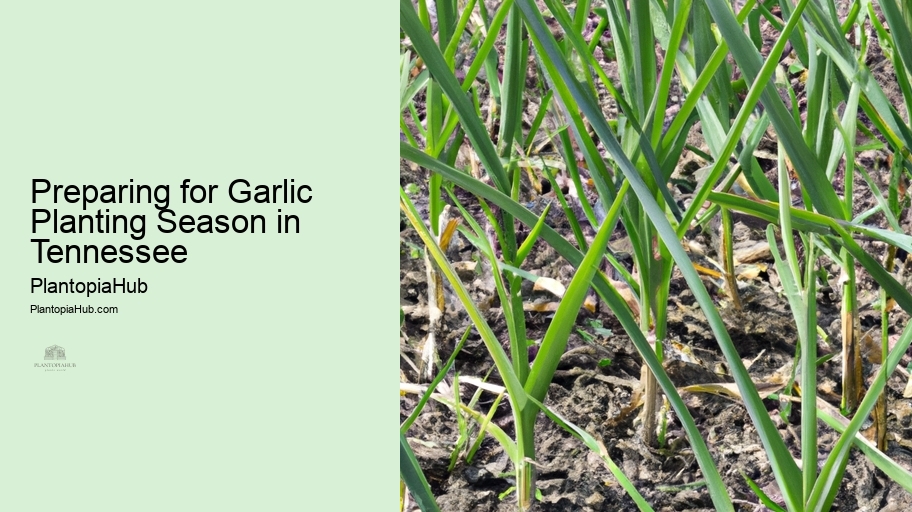

Garlic farming can contribute to a healthy ecosystem in Tennessee. By planting native flowers, herbs, and cover crops alongside garlic, you can support pollinators and beneficial insects.
Biodiversity on your farm can help control pests naturally, reduce the need for chemical interventions, and promote soil health. It's a sustainable approach that benefits both your garlic crop and the environment.
In conclusion, integrating biodiversity into your garlic farming practices can enhance the overall health of your Tennessee farm while minimizing ecological impact.
Farm-to-Table Initiatives Sustainable Garlic Farming Techniques in Tennessee .Homegrown garlic in Tennessee offers numerous nutritional advantages. Garlic Farming Economic Analysis Freshly harvested garlic retains its full flavor and nutritional value, containing essential vitamins, minerals, and antioxidants.
Consuming homegrown garlic can boost your immune system, improve heart health, and provide a rich source of vitamins like C and B6. Its culinary versatility makes it a valuable addition to any diet.
In conclusion, recognizing the nutritional benefits of homegrown garlic in Tennessee can encourage individuals to incorporate this healthy ingredient into their meals.
Crop Rotation PracticesOrganic garlic-based pesticides can be a valuable addition to your toolkit as a Tennessee farmer.
Using DIY garlic-based pesticides aligns with organic farming principles, promoting a healthy and pest-resistant garlic crop.
In conclusion, incorporating homemade garlic-based pesticides into your organic farming practices can help maintain a thriving and pest-free garlic crop in Tennessee.
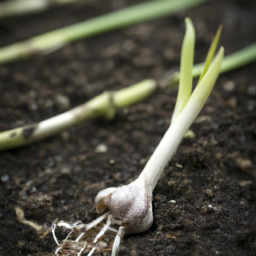
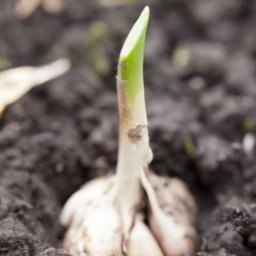
Presentation is key when selling garlic at farmers' markets in Tennessee. Clean and trim your garlic bulbs for an attractive appearance.
Highlight the unique qualities of your garlic, such as its flavor, variety, and organic certification. Engage with customers and share your passion for garlic farming to build trust and loyalty.
In conclusion, effective presentation and engagement techniques can enhance your garlic sales at farmers' markets in Tennessee, attracting customers and boosting your brand.
Hosting garlic braiding workshops can be a fun and educational addition to your Tennessee garlic farm.
Share techniques for creating beautiful garlic braids, and allow attendees to take home their creations. These workshops not only generate additional income but also foster a sense of community around your farm.
In conclusion, offering garlic braiding workshops is a unique way to engage with your local community and promote your garlic farm in Tennessee.
Organic Farming Certifications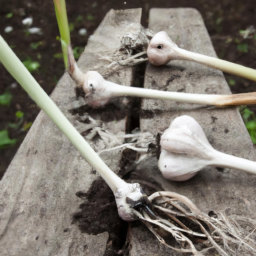
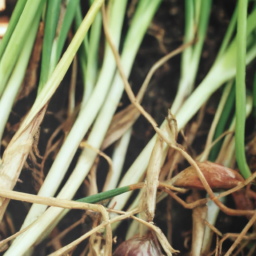
Share seasonal garlic recipes tailored to Tennessee's climate on your farm's website or social media. Garlic Health Benefits Offer cooking tips and ideas for using fresh garlic in dishes that align with the state's seasonal produce.
Highlight the versatility of garlic and its ability to enhance the flavors of locally sourced ingredients. Encourage your audience to explore the culinary delights of homegrown garlic.
In conclusion, providing seasonal garlic recipes can inspire Tennessee residents to incorporate this flavorful ingredient into their cooking, supporting your farm's products.
Soil testing is a crucial step in preparing your Tennessee garlic plantation.
Regular soil testing and amendments help maintain soil health and fertility, ensuring robust garlic crops year after year.
In conclusion, soil testing and proper amendments are essential for successful garlic plantation in Tennessee, providing the foundation for healthy garlic growth.
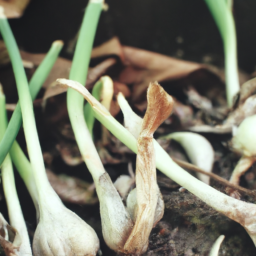
The optimal time for planting garlic in Tennessee typically falls between late September and early November. It's important to consider your specific location within the state, as warmer regions may benefit from earlier planting in September, while cooler areas may choose a late October start. Monitoring local temperature trends and referring to the USDA hardiness zone map for Tennessee can help determine the best planting window.
Organic garlic farming in Tennessee offers several benefits. It promotes soil health, reduces chemical inputs, and produces garlic that meets high organic standards, appealing to health-conscious consumers. Organic practices also contribute to environmental sustainability by minimizing the impact on ecosystems. Furthermore, the demand for organic garlic continues to grow, making it a profitable venture for farmers who embrace these practices.
Creating a customized garlic planting calendar for your Tennessee location involves considering factors like frost dates, local climate variations, and the garlic varieties you plan to grow. Start by determining the average date of the first fall frost and work backward to establish planting dates. It's important to align your calendar with your specific microclimate and garlic variety requirements, ensuring the best timing for planting and harvesting.